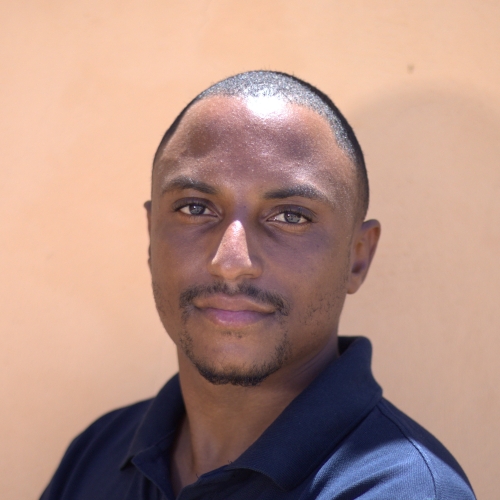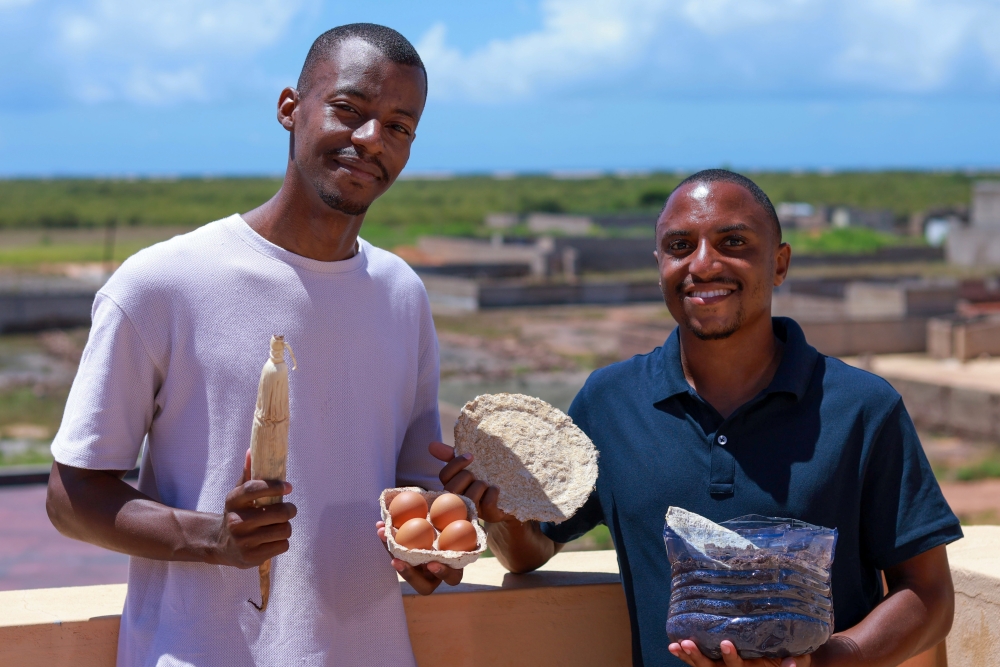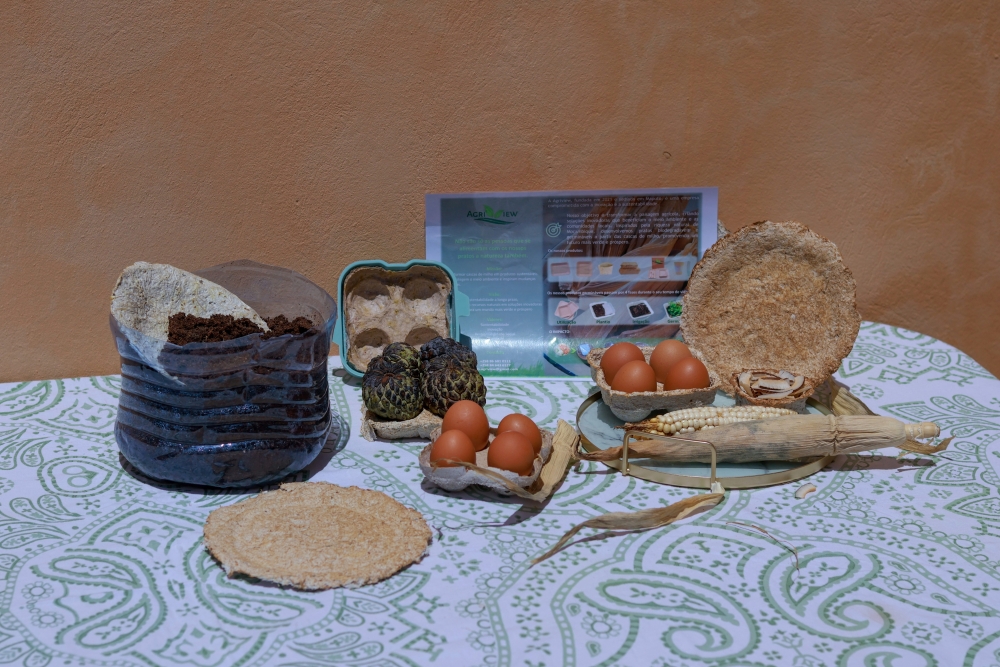Agri View in Mozambique is creating biodegradable, plantable plates, called Eco-Plates, as a sustainable alternative to conventional disposable tableware. Made from maize husk waste sourced from smallholder farmers, the plates biodegrade naturally when thrown away and contain seeds that sprout when planted, transforming a waste product into a non-polluting alternative to plastic, as well as a potential renewable food source, depending on the choice of seeds.
Rui’s story
Born and raised in Maputo, Mozambique, Rui Bauhofer remembers watching a programme at school that caught his imagination about biodegradable plates in Central America made from pineapple leaves.
In 2022, while buying corn from a street vendor, he noticed the piles of maize husks discarded (and typically burned as waste in Mozambique), as well as the discarded plastic at the side of the road, which sparked the idea for Eco-Plates.
He noticed that the maize husks were impermeable, so able to hold liquid, just like the pineapple leaves used to create eco-friendly tableware in Central America. Rui teamed up with co-founder Joaquim Rebelo to start Agri View, to develop products from recycled maize husks, and turn this waste product into a biodegradable alternative to plastic.
The devastation caused by more frequent floods and natural disasters in Mozambique –Cyclones Idai and Kenneth destroyed 780,000 hectares of agricultural crops (the equivalent of over 1 million champions league football pitches) – inspired Rui and Joaquim to create a dual-purpose solution to also benefit small-scale farmers. They began working on the Eco-Plate, designed to recycle agri-waste, be fully biodegradable, and also to provide a potential cash crop once discarded.
The innovation
Still in the testing stages of development, the Eco-Plate production process begins with collecting discarded maize husks from local smallholder farmers. This generates an extra source of income for them. The husks are then cleaned and dried to approximately 10 to 12% moisture to prevent microbial degradation. They are then ground into fine fibrous particles that are boiled with water and soda ash to break down lignocellulosic structures. Finally, they are mixed with starch-based biodegradable binders to form a pulp with approximately 60% moisture. This is compression-moulded in preheated aluminium moulds to activate the binders and solidify the structure. Seeds are embedded between pulp layers to avoid heat damage, and the moulded plates are then sundried for 2 to 4 hours to ensure stability while preserving seed germination potential.
The seeds used in the plates are chosen for heat resistance, germination potential, and fast growth, with common options including basil, coriander, lettuce, and tomatoes. The plates fully biodegrade in 3 to 6 weeks, and when disposed of in soil, embedded seeds sprout within 7 to 20 days. The plates will only biodegrade in certain conditions such as in soil or consistent moisture, not while stored or in use.
Making a difference
Rui and the team at Agri View have plans to scale their business and to introduce Eco-Plates to European, Asian, and American markets as well as expanding through Africa, as a cost effective and environmentally friendly alternative to plastic plates. The team believe that Eco-Plates also have potential as a disaster relief tool, sent to areas affected by floods and other natural disasters to replace basic food crops for smallholders once planted.

We believe we are the first ones making biodegradable plates using maze husks. We saw the potential in an abundant and otherwise wasted product to generate new life for smallholder farmers who have lost their livelihoods after devastating floods. Once used for serving food, our Eco-Plates can be safely discarded and germinate into a food crop to help replace what has been lost. We applied for the Africa Prize because we wanted to network with investors, gain knowledge and also interact with other African entrepreneurs.


- Instagram: https://www.instagram.com/agriview_africa/
